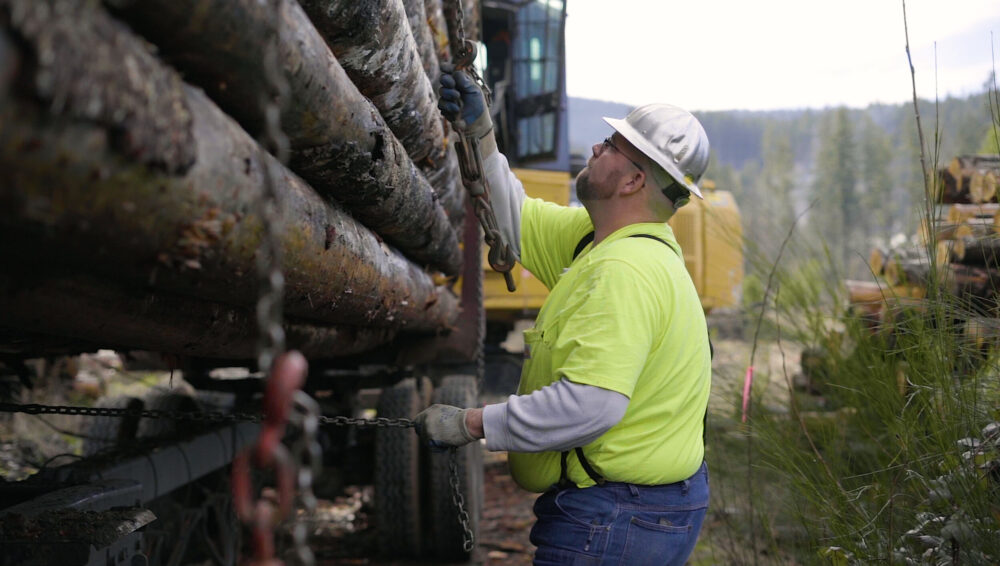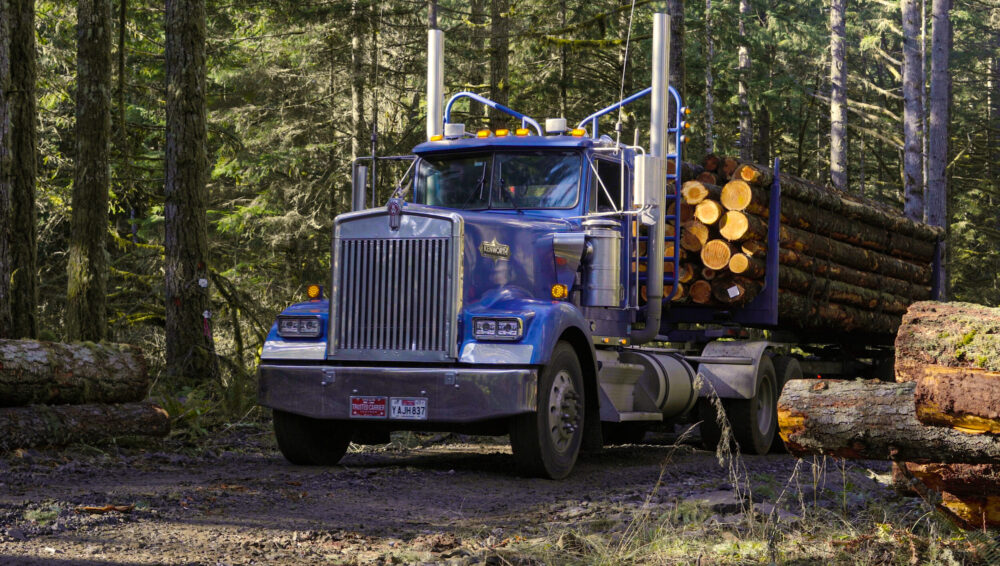Our commitment to sustainability took a significant leap forward as our fleet of 13 log trucks made the switch from B5 biodiesel to R99 renewable diesel. This change works toward greener operations, operational excellence and environmental stewardship.
R99 alleviates most of the issues that were present with the biodiesel blend we were using to power our log truck fleet. R99, unlike biodiesel, is hydrogenated, meaning the oxygen molecules are removed during the refining process. This is a significant advantage for storage and cold weather performance.

There are none of the water issues to deal with using R99 that were problematic with biodiesel. Water that was present in biodiesel had to be treated to displace the water and prevent it from entering the diesel engines and being burned. The water that did enter the engines was combusted into steam and was responsible for many of the injector and fuel system issues we experienced in recent years.
The water present in the B5 biodiesel storage tanks also allowed organic matter (algae) to form and grow. These issues mandated annual storage tank cleaning and disposal of the by-products. This was a very expensive and frustrating necessity that has been eliminated with the switch to R99.
Another benefit to R99 is the cetane value of R99 is almost equal to that of standard fossil fuel diesel. The value for R99 is 70 or above, while the cetane value of bio diesel is 40. Cetane value is the energy resulting from the combustion of the fuel. The higher the cetane value the more efficient the fuel is, meaning the more complete the combustion process is.

R99 is also a completely renewable, sustainable alternative fuel made from waste products such as animal fats, waste oils and agricultural waste products. These products are refined through a hydrogenation process that results in a fuel that is chemically nearly identical to fossil diesel. The fuel is clear in color and has minimal odor. There are no sulfurs, oxygen or aromatics added during the refining process, unlike fossil diesel.
This fuel has been studied and shown to produce 75% less tailpipe emissions than traditional fossil diesel. Because of the environmental benefits of R99, chiefly 75% reduction in GHG emissions and the 100% sustainability of the fuel, we are seeing a push from several states—California especially—to mandate the purchase and use of renewable diesel. Where California trends, historically Oregon hasn’t been far behind.

There have been no negative operational issues as we transitioned to renewable diesel. We have in fact noted several benefits from the change. We are seeing far less regeneration cycles in our engines, we have not experienced any cold weather issues at all, and across the fleet we have seen fuel mileage increases in most of the log trucks using renewable diesel. Renewable diesel is promoted to lower fuel needs, and our experience has proven this to be true.
This switch in fuel was attractive to us because of the sustainability, drastically reduced greenhouse gas emissions, other environmental benefits, stability in storage, and no water problems associated with biodiesel. Since Oregon mandated the use of 5% bio diesel in 2011,, the entire transportation industry (including us), have been waiting for a better alternative to bio diesel. We watched renewable diesel enter the marketplace and enthusiastically make the switch once we were comfortable with the supply chain.
At Freres Engineered Wood, sustainability, stewardship, and innovation stand at the core of our values. Our switch to renewable, sustainable alternative fuels underscores how deeply our values are interwoven with our operations.
Subscribe
We’ll send you a notification when a new story has been posted. It’s the easiest way to stay in the know.